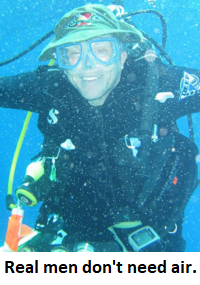Having written this column for many years now, I find myself wondering at times, “Whence?” and “Whither?” and “Wherefore?” and “To what end?” What have I gotten out of it, and what, if anything, have the readers gotten?
Sure, I’m making a buck, which we all have to. But there’s more to it than that. The police beat in an odd one. You can cover HUD or the FAA and it’s just a job. The police beat is a whole world. For some reason, at most papers it’s regarded as low caste, something a cub does between writing obits and rising to cover the mayor’s defalcations. I have loved it because it’s like living in an urban novel.
It has also been a lesson in political cynicism. You read in the papers of the high purpose and foresighted policy of this or that senator. In the streets you learn that nothing happens. The metro sections of the country brim over with stories on this or that wonderful new program for the schools, or some plan to bring employment to the ghetto. Possibly the pols believe in what they’re doing, though I doubt it. Maybe the electorate believes-though I doubt this too.
But nothing changes on the street. Test scores stay down, rates of graduation remain terrible, people still don’t have jobs because they can’t do anything. If twenty billion in new money goes to education?well, I don’t know where it goes. It has no visible effect downtown. The huge sums regularly spent to “revitalize” blighted neighborhoods don’t seem to accomplish anything either, at least for the neighborhoods. Contractors and politicians profit.
I’ve watched crime go up and down. I remember when Washington was the murder capital of the country, and people followed the daily body count with something like civic pride. Now crime is way down, by the standards of urban America. I can’t see that the police have much to do with it. When crime is high, they get the blame, and when it falls, they take the credit. But as best I can see, crime ebbs and flows like the tides, hardly affected by cops.
What changes? The bleak little towns south of Chicago were inhabited by families in the fourth generation on welfare when first I went to them most of a decade ago. Today the same drug markets are there, though the young girls carrying babies are a half generation further along their social path. The young men still regard going to jail as other kids regard going to school. Still people don’t have jobs. There is no reason to think they ever will.
I talk to cops about it, and they usually don’t have enough hope to be cynical. The cynic is angry about things. Cops, many of them anyway, regard unchanging chaos as part of existence. You don’t get cynical about the weather. You just live with it. When a man has spent twenty years on the same streets, chasing dopers and whores and thieves and derelicts who look exactly like the ones he saw on his first night on patrol-he doesn’t bother to hope.
From time to time I go into prisons and major jails. It isn’t enlivening. One thing the police beat teaches you is that a whole lot of people are just plain screwed up, and there’s nothing anyone can do about it. Here is another disconnect between the hopeful style-section view of life, which believes in improvement and therapy, and training, and the invigoration consequent to self-esteem. There is no hope and these people can’t be fixed. They are never going to start their own computer businesses, or even make it to work three days in a row.
I’ve tried to give people an idea of who cops are and what they do. Probably the column has succeeded to an extent in doing this. But I’ve found that the police are one of those subjects about which people, many of them anyway, tend to think they already know everything. As long as I’ve been doing this job, people who are clueless about cops have been analyzing them in psychiatric detail. They’re authoritarian, or repressed, or fascistic, probably stupid, and get a psychosexual gratification out of pushing people around. This view is emotionally held, unchangeable, and mostly wrong.
Funny. The more I know of the cities and the people who police them, the more complex they seem, toe more variegated and resistant to generalities. But people are going to believe what they want to believe.
Nothing changes. Nothing.
